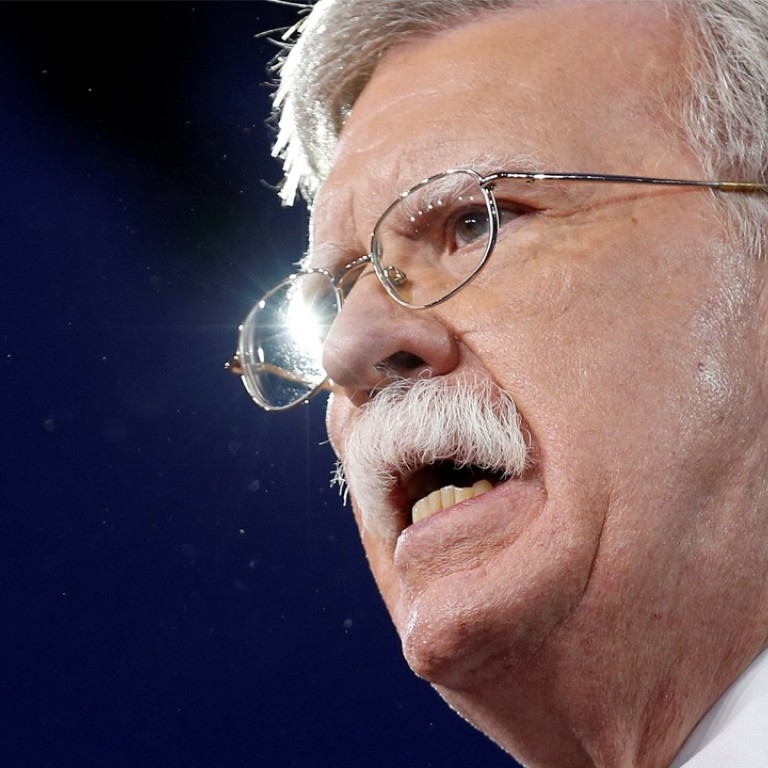
US security head John Bolton would risk military conflict with China to achieve goals, former US officials say
John Bolton would use military force to coerce compliance from China, which US President Donald Trump has painted as an adversary, the Post was told
The new US national security adviser is willing to risk a military conflict with China to achieve President Donald Trump’s goals for America, two former senior US officials have told the South China Morning Post.
John Bolton, who is fond of quoting the ancient Roman battle philosophy, “If you want peace, prepare for war”, would use military force to coerce compliance from China – which an increasingly hawkish White House has painted as a competitor, if not an adversary, the former officials who worked with Bolton said in interviews.
Bolton, who began his new job on Monday, also seeks to challenge Beijing over its “one China” policy on Taiwan, a move that would certainly inflame tensions amid a looming US-China trade war.
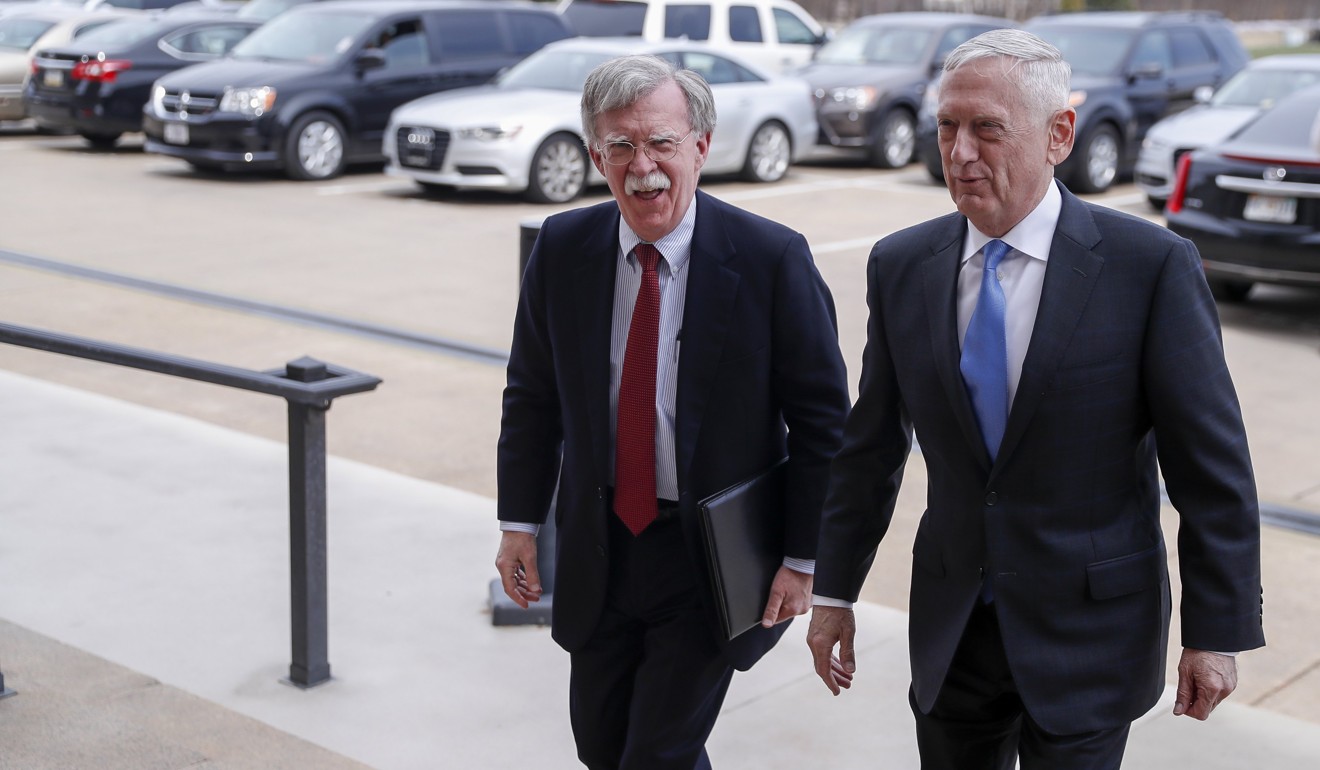
Speculation grew over the weekend that Bolton could visit Taiwan in June when the new American Institute on the self-governed island is slated to open, The Economist reported. The institute represents US interests in the absence of formal ties.
But while Bolton is seen as a military hawk who shares the “Make America Great Again” world view that underpinned Trump’s 2016 election campaign, the president is believed to oppose the idea of hostilities with another nation.
Donald Trump’s homeland security adviser, Thomas Bossert, resigns ‘after being pushed out by new national security head John Bolton’
Those opposing views would tend to set the stage for a potentially contentious relationship between Bolton and Trump on certain US foreign policy and security matters.
Lawrence Wilkerson, who was chief of staff to former US Secretary of State Colin Powell, told the Post he doubted Trump would tolerate Bolton’s disagreeing with him at any point, in light of the bad endings that have come to Trump’s relationships with White House officials who have questioned the president’s past actions on trade, foreign policy and other issues.
However, “if Trump surprises me and does warm to Bolton, we are all in trouble – from North Korea to China,” Wilkerson said.
A major witness during Bolton’s Senate UN ambassadorship hearing in 2005, Wilkerson has labelled Bolton “the most dangerous American” for US foreign security policy.
Bolton, 70, was named by Trump as H.R. McMaster’s replacement in a Twitter posting on March 22. The post did not need to be confirmed by the US Senate.
Syria provides John Bolton with first test as US President Trump’s national security adviser
Bolton’s views on ending the North Korean nuclear crisis are already well-known. He has advocated launching a pre-emptive strike on North Korea over its threat to use nuclear weapons against the US.
It is unclear what Bolton’s endgame for China would be.
Given Trump’s liking for conflict as a negotiating tool – as shown in his verbal clashes with North Korean leader Kim Jong-un and his tit-for-tat trade row with Beijing – it is feasible that Bolton’s liking may be to use military action as a means to an end.
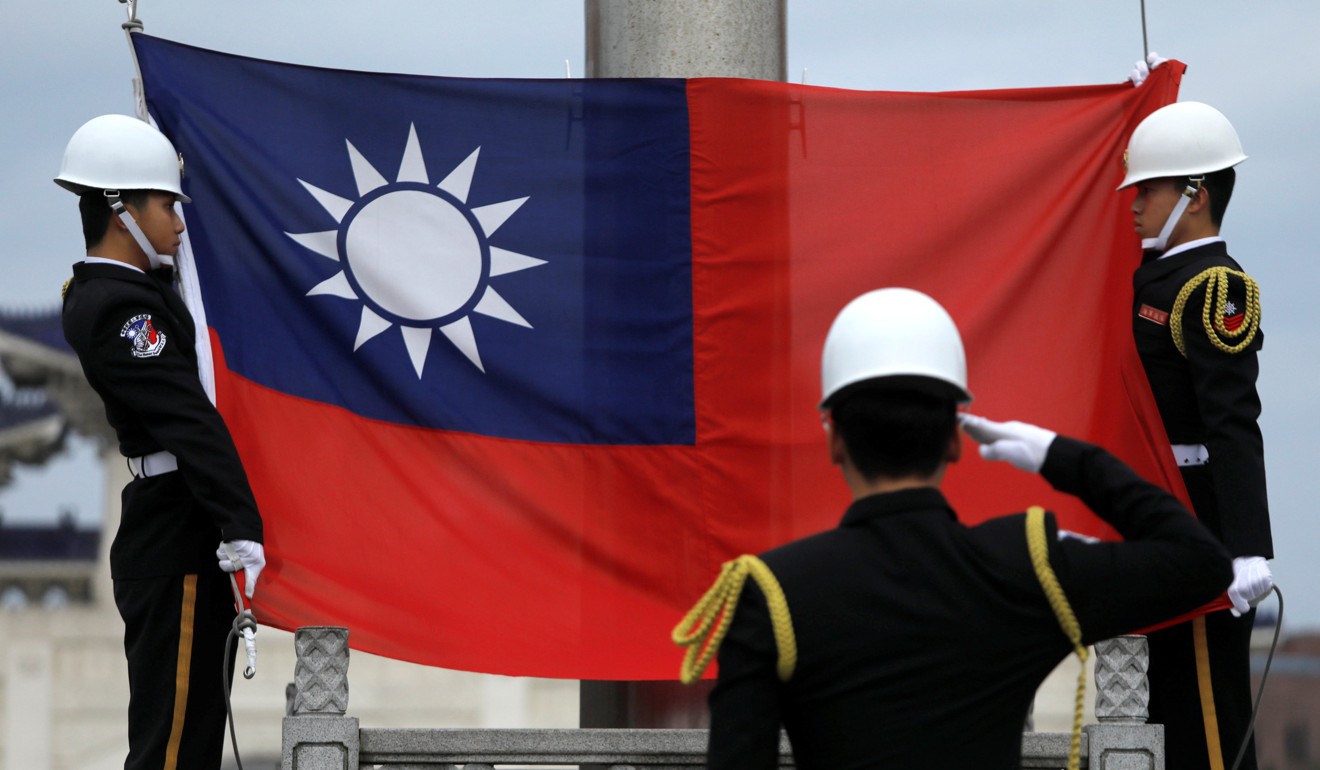
If the ultimate goal would be merely to push back against China in a show of American might that would placate Trump’s voter base, who have accepted the president’s claim that China is taking advantage of the US at the US’s expense, Bolton could play a significant role.
But Bolton’s critics increasingly worry that any outbreak of hostilities now would be ill-timed coming ahead of the proposed historic meeting between Trump and North Korea’s Kim and the reportedly unprecedented visit to Taiwan by a top US official, possibly Bolton himself, in June.
Donald Trump should demand denuclearisation in North Korea meeting, new security adviser John Bolton says
Bolton's extremely militaristic views, however, are subject to Trump’s final say. If the president were to reject his security adviser’s recommendations, then Bolton would be “utterly powerless”, the former officials said.
Bolton has said the US should intensify its military forces on the US island territory of Guam, in Japan and in the Yellow and East China seas.
To convince China to “crack down” on North Korea’s nuclear activities, he has argued that Washington make a case to “reunify the [Korean] peninsula” and make military threats toward Pyongyang “credible”.
China opposes an outbreak of war between the two Koreas on its doorstep, for various reasons.
On Taiwan, Bolton is equally hard-nosed.
‘Fasten your seat belts’: China hawk John Bolton replaces McMaster as Trump’s national security adviser
In an opinion essay he wrote for The Wall Street Journal in January, Bolton called on the US to “revisit the One China policy” and suggested the Shanghai Communiqué of 1972 be renegotiated 45 years after the US agreed to acknowledge that “there is but one China and that Taiwan is a part of China”.
“Let us see how an increasingly belligerent China responds,” Bolton wrote.
Beijing regards the self-ruled Taiwan as a wayward province, to be brought under Beijing’s rule by force if necessary.
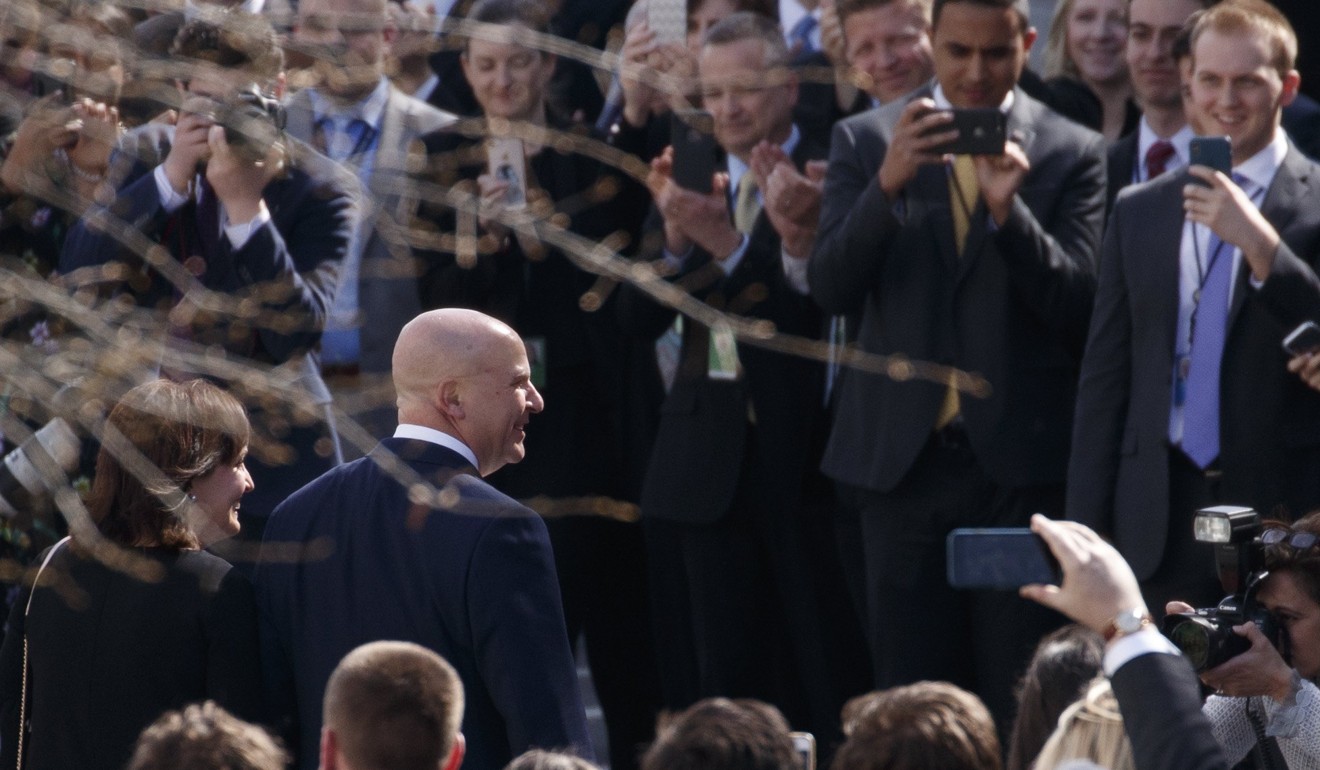
China has warned the US to back down from any official exchange with Taiwan.
“We urge the US to strictly abide by the one-China principle and the three China-US joint communiqués,” Chinese Foreign Ministry Spokesman Geng Shuang told reporters.
The US should “avoid having official contacts with Taiwan or trying to improve their relations in substantive ways, and stop military contacts and arms sales with Taiwan so that China-US relations and peace and stability across the Straits will not be severely damaged”, Geng said.
Diplomacy takes a back seat as hawks land top US cabinet jobs
Ruan Zongze, a former minister counsellor for political affairs at the Chinese embassy in Washington, said on Monday that China will do “whatever it can” to defend the one-China principle. “China has no interest in backing off,” he said.
While some analysts have wondered whether Trump actually needs Bolton as his inner circle takes on an increasingly hard-line tone, the consensus is that Bolton’s arrival gives the president an important official who is, in many ways, like himself.
The description of Bolton by Otto Reich, a Bolton defender and former US assistant secretary of state for Western Hemisphere affairs from 2001 to 2002, sounds much like the man who hired the new national security adviser.
Bolton and Trump “both like to be around strong-willed men”, Reich said. “But I can assure you that John Bolton is smart enough to know which one of the two is the president of the United States and which one is the subordinate to the president.”
Forget US trade tariffs, Donald Trump’s real war is coming soon
“Bolton,” Reich said, “will bring realism to the White House. He hears reality, not the fantasy that doves want to hear, whether it is from China, Iran or Russia.
“Bolton is going to defend American interests wisely but strongly. Beijing, Moscow or Tehran can draw their own conclusions after that.”
In less than a week in his new post, Bolton, like Trump, has become a polarising figure on the US political landscape.
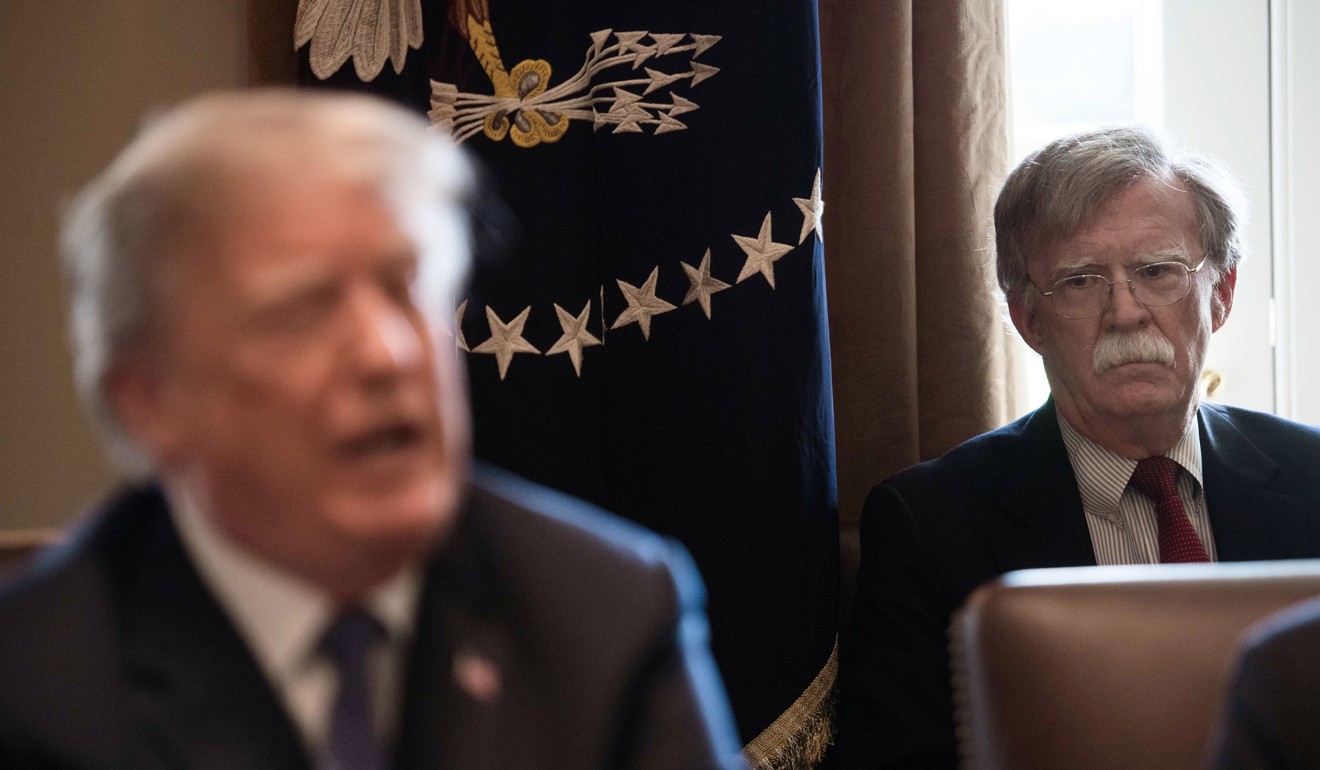
“We have seen a pretty alarming trend in Washington that Trump himself has put up a very, very hawkish team here,” Ruan told the Post. “John Bolton may be one of them.”
“Bolton is definitely a hawk,” David Lyndon Bosco, an Indiana University associate professor who has interviewed Bolton for his work, told the Post.
“He is very willing to consider military force as a way to achieve US objectives.”
On brink of a trade war with China, did Trump really need trigger-happy Bolton and Pompeo?
Bosco, whose speciality is the United Nations, said that Bolton considers China to be a “strategic competitor” and will “push for a more assertive policy” toward it. He may be especially forceful on the South China Sea, Taiwan and other China-related issues.
A graduate of Yale Law School, Bolton worked for former Republican US presidents Ronald Reagan, George H.W. Bush and George W. Bush in several positions within the US State Department, Justice Department and US Agency for International Development.
His formidable diplomatic temperament was notable when he became an undersecretary for arms control at the State Department in 2001, and US ambassador to the United Nations four years later.
But the Senate did not reconfirm Bolton as UN envoy in April 2005 amid a lack of bipartisan support. He eventually secured the post when then-President Bush used his power as chief executive to fill administration vacancies without Senate approval.
North Korea tells US that Kim Jong-un is ready to discuss nukes with Donald Trump
Former US Vice President Joe Biden, then the top Democratic senator at the Senate Foreign Relations Committee, expressed “grave concern” over Bolton’s reappointment at his confirmation hearing, comparing unleashing the hardliner on the UN to sending a “bull into a china shop”.
It remains unclear now whether an aggressive Bolton could work with his new colleagues on the president’s national security team, including incoming Secretary of State Mike Pompeo and Secretary of Defense James Mattis.

When Mattis met Bolton in late March at the Pentagon, he was captured in an off-microphone exchange saying: “I heard you’re actually the devil incarnate.”
Douglas Paal, vice-president of studies at the Carnegie Endowment for International Peace, said: “The quip was unmistakably a joke, not serious.
“I think General Mattis will, as always, look out for the best interests of his troops, whatever it takes.”
China warns against military action in Syria as threat of US strikes put everyone on high alert
Pompeo, 54, is also known to maintain a wary view of China. His nomination to replace Rex Tillerson as secretary of state was announced by Trump in a tweet on March 13. He has not yet been confirmed by the Senate.
“I think China has the capacity to present the greatest rivalry to America … over the medium and long term,” Pompeo said in July of last year. He repeated in a BBC interview in January that China could pose “as big a threat to the US” as Russia through the covert influence it wields over US life.
The US has to “do better pushing back” against China, Pompeo said.
Pompeo is believed to be leading the preparation for the Trump-Kim summit this June.
Kurt Campbell, former assistant secretary for East Asian and Pacific Affairs at the US State Department, told the Post that Pompeo, not Bolton, is in the driving seat for the historic meeting.
But Reich said he believed Bolton and Pompeo would “get along”.
US politicians break ranks over Donald Trump’s ‘nuts’ trade moves against China
Both men are extremely intelligent and disciplined individuals and both have many years of government service, Reich said.
Mark Groombridge, a long-time adviser for Bolton at the State Department, however, was quoted by The Washington Post as saying that Bolton's style was to "run an imperial National Security Council”.
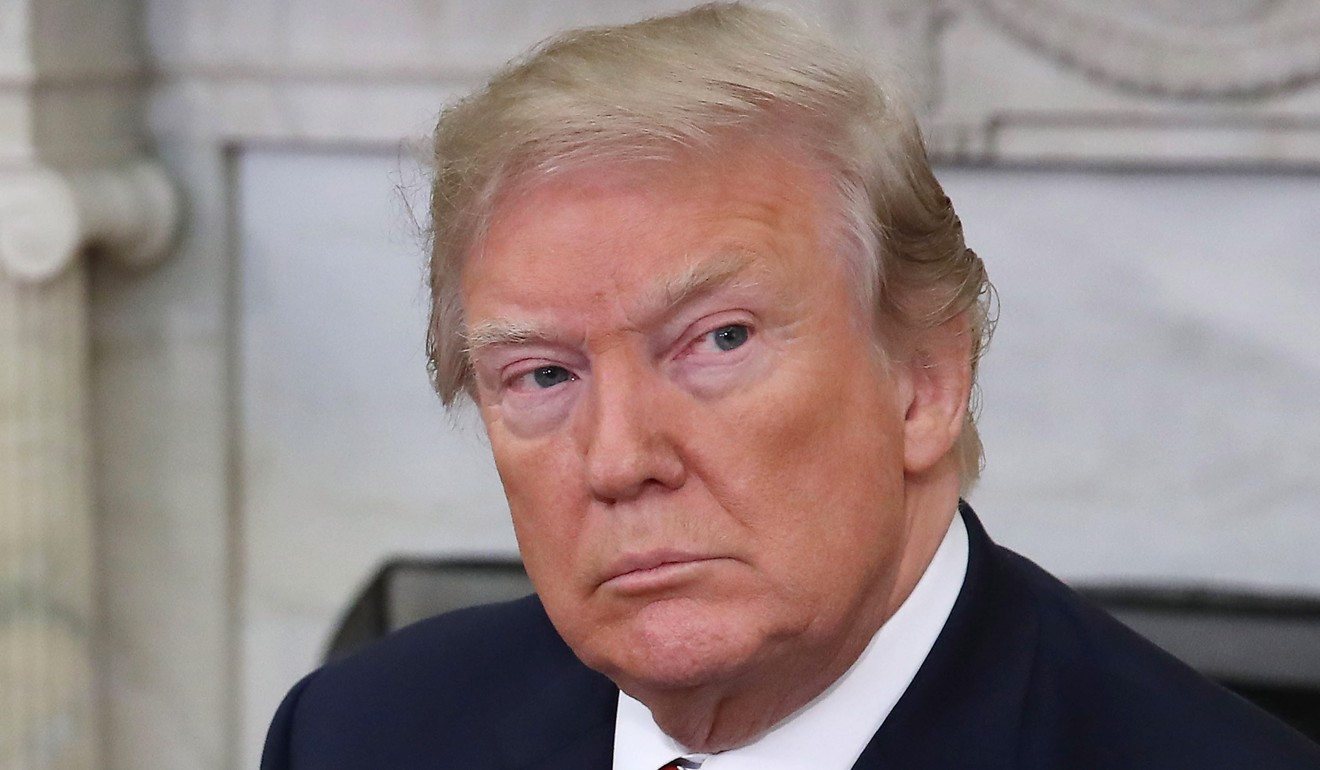
Groombridge said that “the State and Defense departments are there to implement White House policy”.
The National Security Council traditionally serves to get bureaucracies to support the President’s agenda, said Carnegie’s Paal, who was NSC director of Asian affairs and special assistant to the president with the Reagan and George H. W. Bush administrations.
“There are multiple ways to accomplish that objective, ranging from gentle to harsh,” Paal said. “But the real measure will be their effectiveness, not their style.”
Donald Trump mulls extra US$100 billion punitive tariffs on China imports
Paal sensed that there is “a broad bipartisan consensus in the US that China is taking advantage of the US in many dimensions”, and that “it is time to push back”.
When Hillary Clinton appeared the front-runner in the 2016 presidential election, China feared she would pursue an “anti-China direction if elected, and she likely would,” Paal said.
“If Trump’s key advisers all were changed again tomorrow, the direction would be basically the same.”

